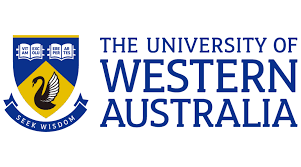University of Western Australia: New grant allows student to investigate remote Indigenous aged care
Identifying ways to improve the lives of ageing Aboriginal and Torres Strait Islander people in remote communities will be the focus of an 18-month project by an Indigenous Masters student from The University of Western Australia, Lianne Gilchrist.
UWA Pro Vice-Chancellor Indigenous Education Professor Jill Milroy said Ms Gilchrist had been awarded a grant from the UWA Poche Centre for Indigenous Health to complete the project which would adapt the Good Spirit, Good Life quality of life assessment package from urban regions to remote areas.
“It’s fitting that news of Lianne’s grant has fallen on national Close the Gap Day, a national day of action to pledge support for achieving Indigenous health equality by 2030,” Professor Milroy said.
“The Close the Gap campaign aims to close the health and life expectancy gap between Aboriginal and Torres Strait Islander people and non-Indigenous Australians within a generation, which is precisely the space Lianne will be working in.”
Professor Dawn Bessarab, Principle Investigator on the NHMRC funded Good Spirit, Good Life Centre for Research Excellence, said the Good Spirit, Good Life framework identified the wellbeing of older Aboriginal people and provided culturally informed strategies on how services and family caregivers could support Elders wellbeing as needed, including at end of life.
“It is part of a body of work being completed through the Good Spirit, Good Life Centre which aims to build the capability of services, systems, communities, and researchers to support Elders as they age,” Professor Bessarab said.
“The quality-of-life assessment tool is now urgently needed for older Indigenous people in regional and remote areas as a benchmark for service quality standards and culturally safe care, gaps highlighted by the Aged Care Royal Commission and the National Aged Care Diversity Framework.
“The Poche Centre funding will support Lianne’s Master’s project to complete community and stakeholder engagement, data collection, data analysis, and translation of the assessment package into policy and practice,” she said.
Ms Gilchrist said she is extremely grateful to receive the grant.
“This is such important work and having been involved in developing of the quality-of-life assessment tool and in implementing it in urban areas, I’m thrilled to be able to now look at taking it out to regional and remote areas where it is urgently needed,” she said.

